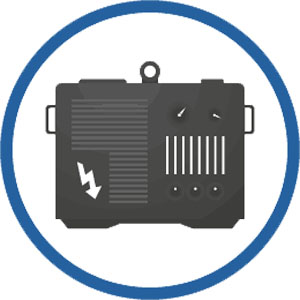Technologies helping to improve the efficiency of standby power systems
According to Pike Research: Many suppliers are choosing to incorporate flywheel technology into their standby power systems because flywheel systems can have a smaller footprint than a battery bank.
To take advantage of these markets many suppliers are focusing their R&D efforts on creating greater efficiency through transformerless designs, or reducing battery footprints, while some are looking at flywheels as a means of storing energy. Rotary flywheel-based systems have always been a popular choice at the high end of the market, but are now increasing in popularity in the middle range of the market due to new, more compact designs and greater reliability.
Flywheel systems
The flywheel system stores energy by constantly spinning a flywheel. If the power fails, a reliable source of DC power is then delivered by using the kinetic energy stored in the high-speed flywheel. While the flywheel can only produce a high power output for short durations (20-90 seconds), some organisations are now choosing to incorporate them into their standby power systems because a flywheel can have a smaller footprint than a battery bank. Flywheels are also seen as greener technology because they eliminate the need to use energy to cool batteries, and have an average lifespan of 20 years, versus just four years for a battery. Although flywheels have a relatively high capital cost, their longevity and smaller footprint means that over the long term the total cost of ownership can be lower than that of a battery bank, especially when you consider the cost of battery disposal and regular servicing.
Want to know more?
If you would like to learn more about rotary flywheel based UPS systems, and see whether they are a viable energy storage solution for your needs, why not contact us? We can discuss a number of options with you from some of the industry's leading suppliers.
UPS Systems plc supply a selection of uninterruptible power supplies including those from Riello UPS and Eaton UPS as well as the UPS battery packs designed to go with them.


























